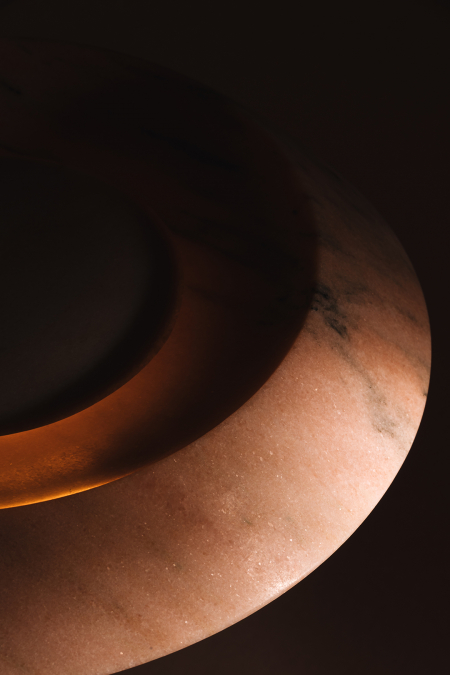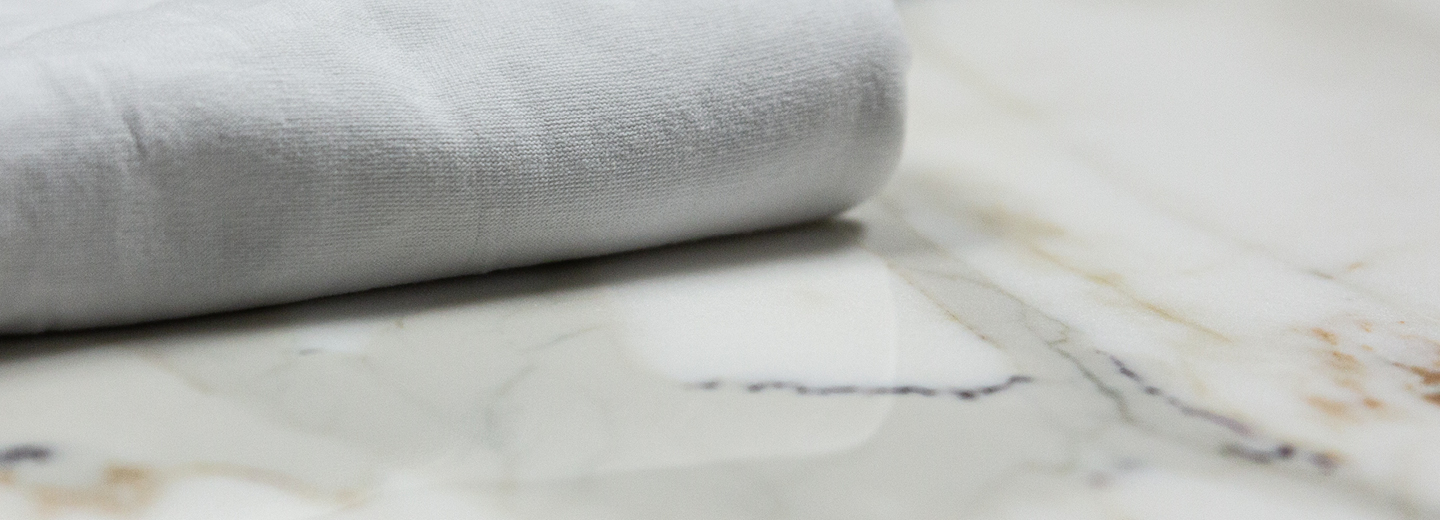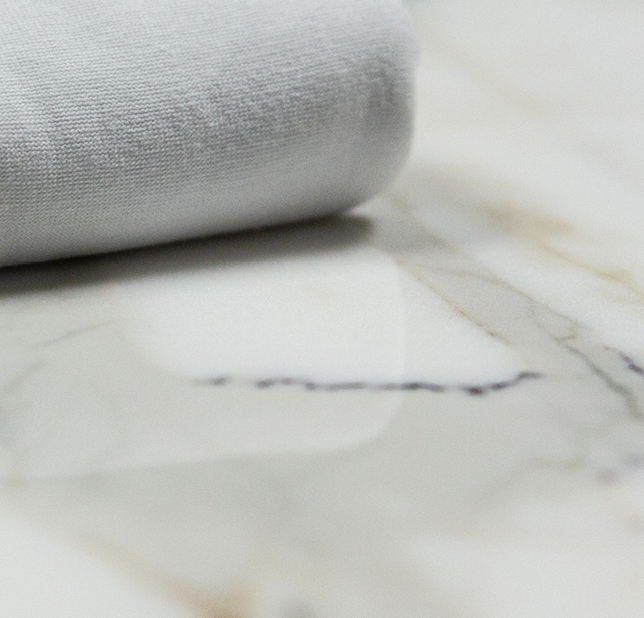MARBLE
Due to marble characteristics, you must avoid certain solutions (like acids, coffee, alcohol) coming in contact with the marble. This also applies to cleaning products (including vinegar, lemon juice or other cleaners containing acids).
To minimize the effect of the etching and staining you should try protecting this beautiful and natural material by putting a coaster under items, such as glasses, placed on the marble surface, especially if they contain alcohol or acid as well as having a renewal of the coating done yearly or twice per year.
To clean the marble surface use warm water and a non-abrasive sponge or soft cloth. It is the best method for cleaning, but it will not remove etching or stains that are permeated on the surface.
What to avoid
- Do not use rigid protective bases (ceramic, metal, or other solid materials) that may scratch the stone surface.
- Do not use bleach, ammonia, general-purpose cleaners or abrasive cleaning agents, abrasive paper or steel wool.
- Do not use cleaners that contain acid such as bathroom cleaners, grout cleaners, tub cleaners or tile cleaners.
- Do not use alkaline cleaners not specifically formulated for natural stone.
- Do not leave pools of water on the marble surface, as it could end up leaving stains.
What can be used
- Marble surfaces can be treated with a special anti-stain and anti-oil products.
- Professional refinishing is recommended to remove etch marks and restore the stone’s natural finishing. However, if you do not have access to it, you can manually remove the stains.
- If a stain is particularly difficult, use a soft scrub pad to buss out the stain and wipe it with a cloth to remove the dust.
- Finally, you may apply stone sealant to re-establish protection on the affected areas. If you choose to seal your marble, use a quality product and follow the manufacturer’s directions for use (stone sealants can be purchased at almost any home improvement centre).
METAL
- Never use alcohol or detergents on metals.
- Use only thin cotton or extra soft cloths. We recommend stained metals to be cleaned by professionals.
- The polished metal should be cleaned with a damp cloth.
- Do not use ointments or commercial waxes directly on the materials as they may scratch or damage the finish.
TIMBER AND LACQUERS
- Woods and lacquers bring depth and beauty to the products. Even being protected with varnish and other finishes they are susceptible to erosion. The items should only be cleaned with a soft cloth.
- Do not use commercial ointments or waxes. Wood and lacquers should not be close to heaters and air conditioners to avoid excessive drying or exposure to moist.
- Avoid extreme humidity changes at home, as extremely dry air can cause damage to the wood and crack the lacquer.
- Do not place hot or damp objects directly on the wood.



